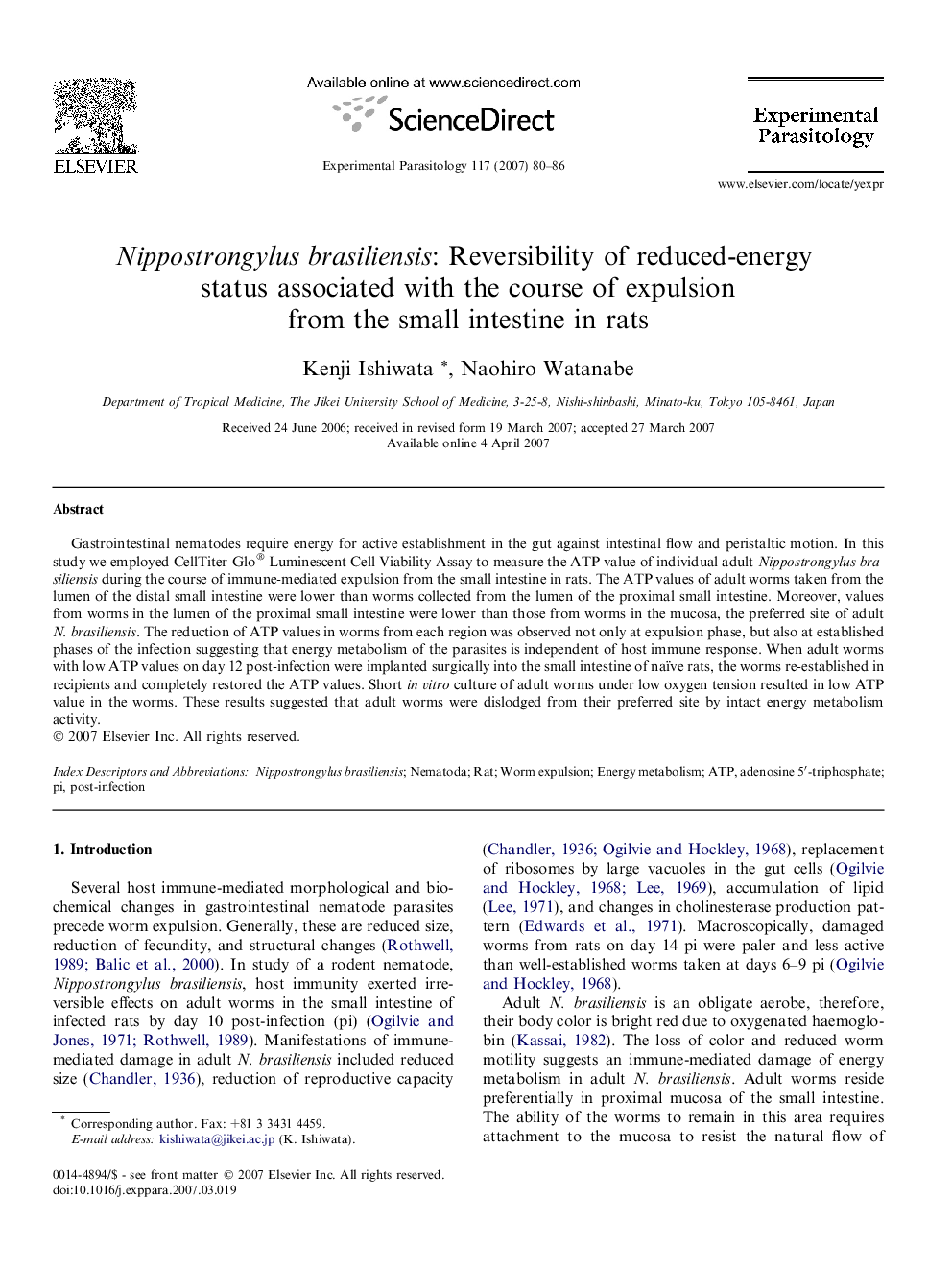| Article ID | Journal | Published Year | Pages | File Type |
|---|---|---|---|---|
| 4371662 | Experimental Parasitology | 2007 | 7 Pages |
Abstract
Gastrointestinal nematodes require energy for active establishment in the gut against intestinal flow and peristaltic motion. In this study we employed CellTiter-Glo® Luminescent Cell Viability Assay to measure the ATP value of individual adult Nippostrongylus brasiliensis during the course of immune-mediated expulsion from the small intestine in rats. The ATP values of adult worms taken from the lumen of the distal small intestine were lower than worms collected from the lumen of the proximal small intestine. Moreover, values from worms in the lumen of the proximal small intestine were lower than those from worms in the mucosa, the preferred site of adult N. brasiliensis. The reduction of ATP values in worms from each region was observed not only at expulsion phase, but also at established phases of the infection suggesting that energy metabolism of the parasites is independent of host immune response. When adult worms with low ATP values on day 12 post-infection were implanted surgically into the small intestine of naïve rats, the worms re-established in recipients and completely restored the ATP values. Short in vitro culture of adult worms under low oxygen tension resulted in low ATP value in the worms. These results suggested that adult worms were dislodged from their preferred site by intact energy metabolism activity.
Keywords
Related Topics
Life Sciences
Immunology and Microbiology
Parasitology
Authors
Kenji Ishiwata, Naohiro Watanabe,
